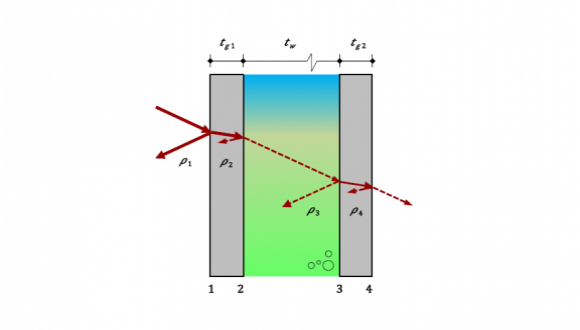Can Algae reduce the Energy Consumption of Building Structures
Recent study findings suggest potential to improve energy efficiency in the studied building by incorporating microalgae in windows
A recent joint study at the Bioengineering Lab at the Department of Environmental Studies analyzied the potential impact of incorporating living microalgae to the built facades, in the form of an algae window, on the energy consumption of the building.
The impact of two microalgae specieson on light penetration and heat transfer was measured by calculating the U-factor (Thermal conductance), VT (Visible Transmittance) and SHGC (Solar Heat Gain Coefficient) of the Algae Window.
The empirical results show that incorporation of the microalgae into the windows has the potential to improve the energy efficiency in the studied building under the conditions of the Mediterranean climate.
The study was conducted within an office space in the LEED accredited Porter building in Tel-Aviv University by Prof. Alexander Golberg, Dr. Limor Shashua-Bar, Elad Negev, Mark Polikovsky of the Department of Environmental Studies, Porter School of the Environment and Earth Sciences, Tel Aviv University, Prof. Abraham Yezioro of the Faculty of Architecture and Town Planning at the Technion Institut of Technology, Prof, Abraham Kribus of the School of Mechanical Engineering, Faculty of Engineering, Tel Aviv University and Arch. Dr. , Joseph Cory of Geotectura studio.
The research paper was published in "Energy and Buildings" Volume 204, 1 December 2019. https://www.sciencedirect.com/science/article/pii/S0378778819305146



